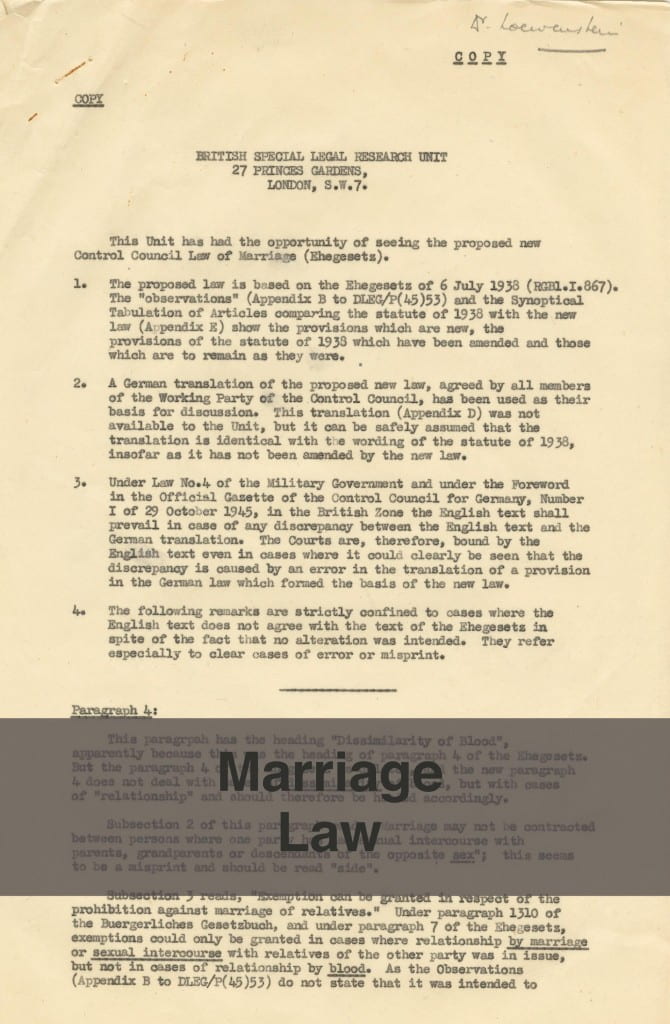 Loewenstein spent approximately six months (September 1945 – March 1946) working on drafting the new marriage law. Along with the law for the reorganization of the bar, the marriage law was Loewenstein’s primary focus during his time at OMGUS. Loewenstein bemoaned the lack of support he had within OMGUS, and frequently claimed that the law could have been finished far earlier had OMGUS been more efficient. Loewenstein also encountered problems with having the law translated into English, French, and Russian (the document to the right is a memo on the English translation of the law). The Russians delayed the signing of the law multiple times in an attempt to change the section regarding the return of gifts after a divorce. After much haggling over translations and amendments, the law was finally approved in March 1946.
Loewenstein spent approximately six months (September 1945 – March 1946) working on drafting the new marriage law. Along with the law for the reorganization of the bar, the marriage law was Loewenstein’s primary focus during his time at OMGUS. Loewenstein bemoaned the lack of support he had within OMGUS, and frequently claimed that the law could have been finished far earlier had OMGUS been more efficient. Loewenstein also encountered problems with having the law translated into English, French, and Russian (the document to the right is a memo on the English translation of the law). The Russians delayed the signing of the law multiple times in an attempt to change the section regarding the return of gifts after a divorce. After much haggling over translations and amendments, the law was finally approved in March 1946.
The new marriage law was an adaptation of the marriage law passed by the Nazis in 1938. Some parts of the 1938 statute were amended or deleted, while others were left intact. All aspects of the law based on the Nazis’ racist ideology were removed. The English translation superseded the original German law. Under the new marriage law, a marriage could be valid only if performed by a civil registrar. Translators of the original German law were very confused as to whether children born to an unregistered couple would be considered legitimate.
Box 33, Folder 1, Karl Loewenstein Collection, Amherst College Archives & Special Collections.
